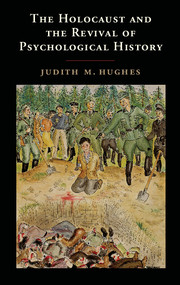5 - A Battle with Truth
Published online by Cambridge University Press: 18 December 2014
Summary
Hugh Trevor-Roper, in his capacity as intelligence officer on mission to confirm the death of Hitler, interviewed Albert Speer at length. He found him “indispensable.” He accepted Speer’s account of the Führer’s hypnotic powers, of his mesmeric influence, and believed, as well, that Speer himself had succumbed to Hitler’s spell. Gitta Sereny encountered Speer more than three decades later; in the interim he had been convicted of war crimes and had served a twenty-year prison term. She heard much the same story – all the while struggling to resist his considerable charm.
Their acquaintance began with a letter from Speer to Sereny in July 1977. He wrote to thank her for an article of hers that had appeared in the London Sunday Times. In it she discredited David Irving’s claim – he later became a notorious Holocaust denier – that Hitler had not known about the extermination of the Jews until October 1943 at the earliest. Then the following day, a second letter from Speer arrived. “He had forgotten to mention … that … he had read Into That Darkness, which had caused him sleepless nights.” If she was ever in the vicinity of Heidelberg, he added, would she perhaps care to come and talk?
- Type
- Chapter
- Information
- The Holocaust and the Revival of Psychological History , pp. 153 - 178Publisher: Cambridge University PressPrint publication year: 2014

